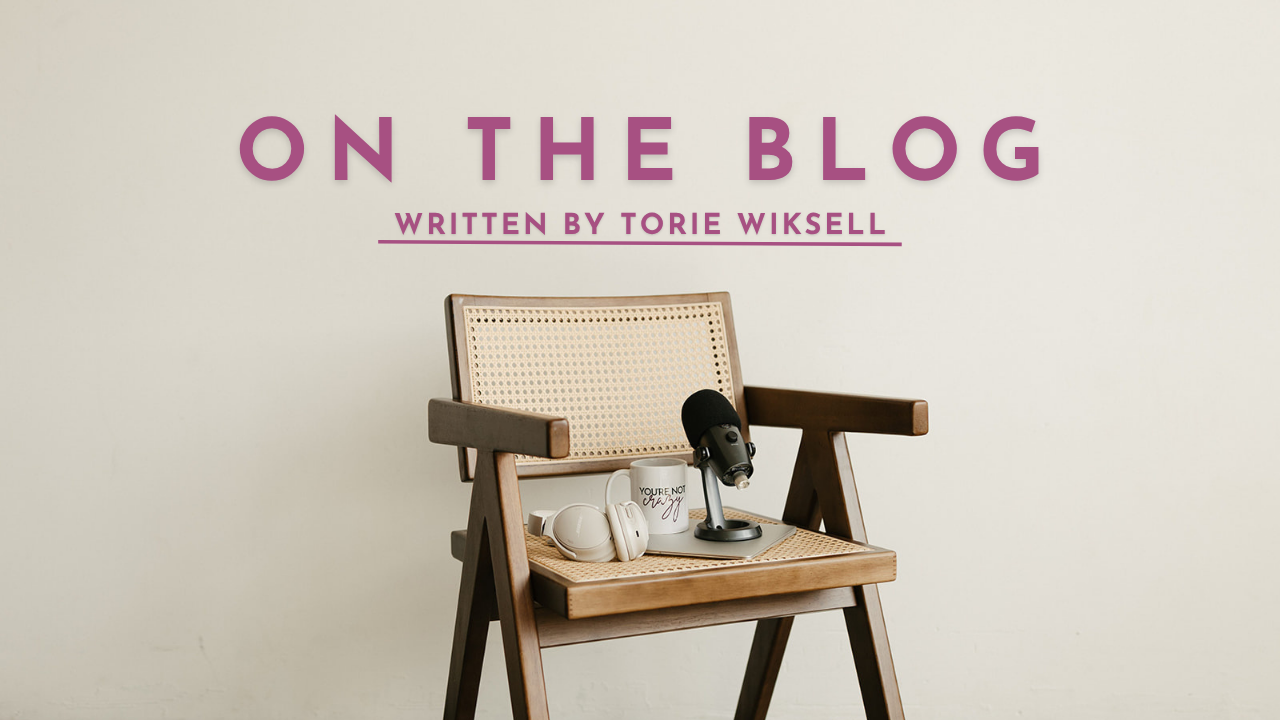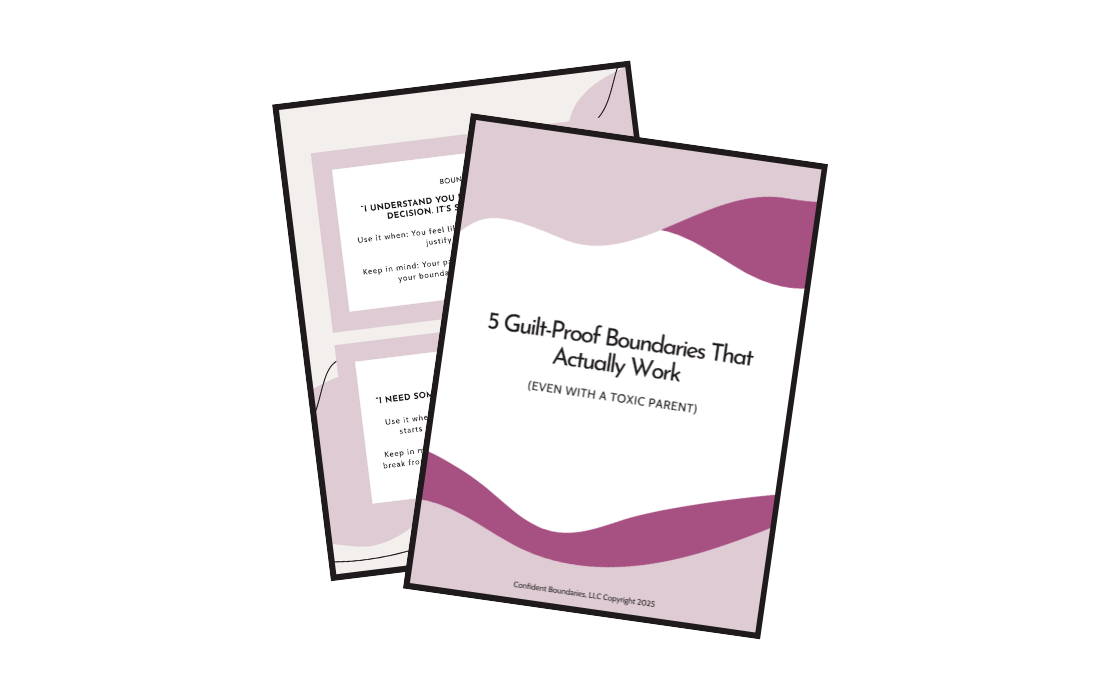
Breaking Free from Guilt When Dealing with Challenging Family Dynamics
If you grew up with emotionally immature parents—especially a parent with borderline or narcissistic personality disorder—you probably know this feeling all too well:
The guilt.
The kind that hits you like a brick wall when you even think about saying “no.”
The kind that floods your system when you start to pull away.
The kind that makes you question whether you’re the problem—just for needing space.
This kind of guilt is heavy. Sticky. Confusing.
And if you’ve ever felt like you were drowning in it, you’re not alone.
And you’re not wrong for feeling it.
But it’s time to start separating the guilt that serves you… from the guilt that keeps you stuck in a dysfunctional family dynamic.
Guilt Isn’t the Problem—Weaponized Guilt Is
Let’s be clear: guilt, in its healthy form, isn’t bad.
Healthy guilt is what we feel when we’ve crossed a line that goes against our values.
It helps us reflect. Repair. Course-correct.
But the guilt you feel when you’re dealing with a toxic parent?
That’s not healthy guilt. That’s manipulative guilt.
That’s the kind of guilt that’s been trained into you by someone who benefitted from your self-abandonment.
Parents with BPD or NPD often use guilt as a tool to control:
-
“I guess I’m just a horrible parent, then.”
-
“You’ve changed.”
-
“After everything I’ve done for you…”
-
Silence. Withdrawal. Emotional punishment.
It’s not subtle. But when you’ve grown up in it? It feels normal.
It feels like maybe you really are being selfish for having boundaries.
How to Tell the Difference
When guilt creeps in—because it will—pause and ask yourself:
-
Is this guilt coming from a genuine wrongdoing… or is it just a conditioned response?
-
Who benefits from me feeling this way?
-
If I didn’t feel guilty right now, what would I actually want to do?
These are not small questions.
These are the questions that start to unravel a lifetime of emotional manipulation.
Because the truth is:
Guilt doesn’t always mean you’re doing something wrong.
Sometimes it means you’re finally doing something different.
Why Boundaries Feel So Wrong (When They’re So Right)
If you grew up in a dysfunctional family with emotionally immature parents, you were probably taught:
-
That love = self-sacrifice
-
That “no” = rejection
-
That your needs = selfishness
-
That peace = people-pleasing
So of course setting boundaries feels awful.
Of course you’re flooded with guilt.
You were conditioned to believe that protecting your peace made you the bad guy.
But here’s what’s true:
-
Setting boundaries is not rejection.
-
Saying no is not cruelty.
-
Prioritizing your emotional well-being doesn’t make you selfish—it makes you healthy.
You are not responsible for managing your parent’s emotions.
You never were.
And their reaction to your boundary?
That’s about them—not you.
You Don’t Have to Wait for the Guilt to Go Away
Here’s the part no one says out loud:
You don’t have to wait until the guilt disappears to start setting boundaries.
Waiting to feel 100% confident and guilt-free before you protect yourself?
That’s just another trap.
Because when you’ve been trained to feel guilty for existing, that “guilt-free” moment may never come.
But here’s the secret:
You can feel guilty—and still set the boundary.
You can feel uncomfortable—and still make the choice that’s right for you.
And the more you do it? The less power that guilt holds over you.
You’re Not the Problem—You’re Breaking the Cycle
Breaking free from this kind of emotional enmeshment is hard work.
But it’s possible.
You can unlearn the idea that your worth is tied to how useful or agreeable you are.
You can start trusting your instincts—even when the guilt says not to.
You can build relationships where your needs aren’t just tolerated, but respected.
This isn’t about cutting off your family just for the sake of it.
It’s about finally choosing yourself in a family system that never did.
You Deserve a Life That Feels Like Yours
You’re not selfish for creating space.
You’re not dramatic for having boundaries.
You are allowed to feel what you feel.
You are allowed to prioritize your peace.
You are allowed to stop managing someone else’s emotions—and start taking care of your own.
Healing from toxic parents isn’t just about what you leave behind.
It’s about what you’re building in its place.
You deserve a life that feels safe.
A life that feels healthy.
A life that feels like yours.
You’re Not Crazy.
But you might have been gaslit by your parents.
Learn how to recognize the signs—and start rebuilding trust in yourself.
I hate SPAM. I will never sell your information, for any reason.



